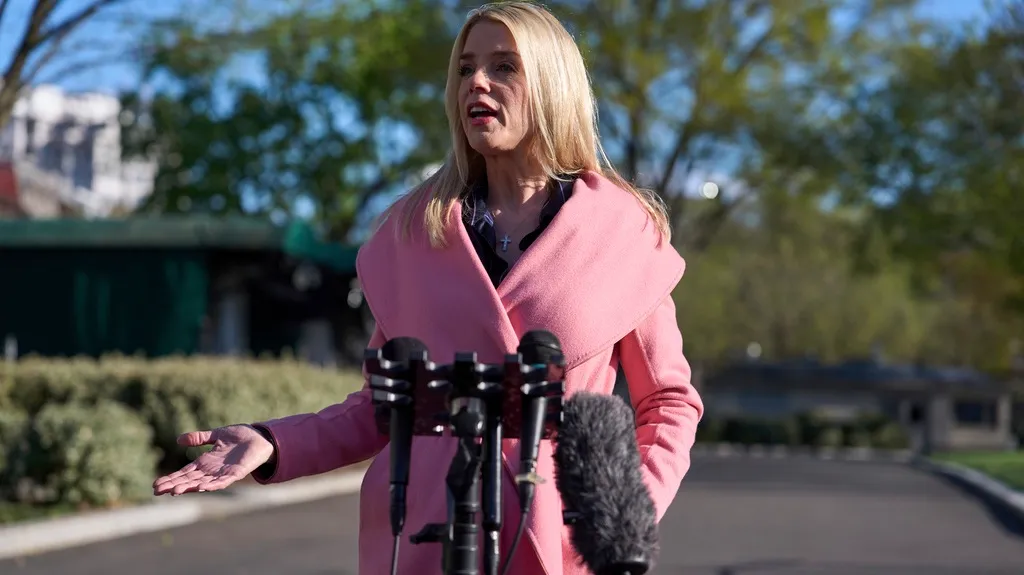March 20, 2013
Arizona Bill Ties Restroom Use to Birth Gender
Jason St. Amand READ TIME: 4 MIN.
Arizona lawmakers have jumped in to the national debate over the rights of transgender people with a bill being debated Wednesday that would make it illegal for people to use public restrooms not associated with their birth gender.
Advocates say the measure would be the toughest standard in the nation for transgender people and bathroom use, requiring Arizona residents to use the restroom of the sex listed on their birth certificate. One local TV station has dubbed it the "Show Me Your Papers Before You Go Potty" bill, a reference to the Arizona Legislature's sweeping 2010 immigration law.
State and local governments are increasingly adding gender identity to anti-discrimination bans to ward off legal battles, but the delicate issue of what kind of restroom can be accessed by men and women presenting as a gender other than what they were born as remains largely unexplored despite a growing number of people identifying as transgender.
Transgender people have successfully sued businesses that didn't provide equal access to public facilities under state and local anti-discrimination bans that include gender identity. But opponents and proponents alike complain the laws don't explicitly demand businesses provide equal access for transgender people, creating confusion over how governments, restaurants, clothing stores and other establishments must act.
In recent weeks, Massachusetts and California took steps to clarify such laws and ensure equal access for transgender students to gender-segregated facilities. Phoenix passed a human rights ordinance last month prohibiting gender identity discrimination at public accommodations.
"If you look like a man and you live your life like a man, you should be able to use a man's bathroom," said Dru Levasseur, a transgender rights attorney for Lambda Legal, a national gay advocacy group based in New York. "It's just common sense."
In Arizona, where Republicans control state government, prominent GOP Rep. John Kavanagh said he was outraged by Phoenix's effort to increase protections for transgender people. His proposed law would make it a misdemeanor for a person to use a public restroom, bathroom, shower, bath, dressing room or locker room associated with a gender other than what's on his or her birth certificate.
Penalties include the possibility of six months in jail. An Arizona House of Representatives committee is scheduled to consider the bill on Wednesday.
Kavanagh said government shouldn't allow people to use facilities based on "you are what you think you are." He said he was worried Phoenix's anti-discrimination ban would serve as a cover for pedophiles who want to expose themselves to children of the opposite gender.
"This law simply restores the law of society: Men are men and women are women," he said. "For a handful of people to make everyone else uncomfortable just makes no sense."
Police officers would be able to make judgment calls about when to press charges when, say, a woman uses a men's bathroom to avoid a long line, Kavanagh said.
Masen Davis, executive director for the Transgender Law Center in San Francisco, said businesses have generally been more active than governments in recognizing equal access rights for transgender people, in some cases to avoid legal challenges. Davis said Arizona's proposed ban would target people who look different, regardless if they are transgender or not.
"No one should have to live in a world where they have to show their papers to pee," Davis said.
The term transgender covers men and women whose identity does not match with their birth-assigned sex, including cross-dressers and people who don't want to alter their bodies hormonally or surgically.
Transgender people often have a hard time changing the gender on a birth certificate because many states require proof of gender treatment surgery, which is expensive and often not covered by health insurance. Other states, including Idaho and Ohio, do not allow birth certificate changes for gender, according to the American Civil Liberties Union.
Equal access debates are playing out in states across the country. Discriminating against transgender people is illegal in at least 16 states. The protections vary. Minnesota prohibits discrimination in employment, housing, education and public accommodations, while Hawaii's law only applies to housing, according to the ACLU.
More than 100 cities and counties have passed laws prohibiting gender-identity discrimination, including Atlanta, New Orleans and Dallas. Those laws are also not uniform. For example, Baltimore County approved a measure in 2012 protecting transgender people from discrimination. It did not apply to "distinctly private or personal" facilities. Tennessee lawmakers tried going in the other direction with a proposal similar to Arizona's in 2012, but it failed to gain support.
Some state laws are being tested in court. In one case, a Colorado family filed a complaint with the state's civil rights office after their first-grader, who was born a boy, was prohibited from using the girl's bathroom at her elementary school.
Opponents to equal access laws insist they do not want to discriminate against any groups, but simply value public safety for the majority over transgender rights.
Some fret the anti-discriminatory laws will force businesses to spend many dollars on renovation projects in order to provide unisex facilities and avoid complaints from customers who don't want to share bathrooms and dressing rooms with transgender people. They say Arizona's proposed law would instead protect businesses from bogus complaints from people who aren't transgender.
"Someone can just say 'oh, I feel like I am a woman,'" said Aaron Baer, a spokesman for the Center for Arizona Policy, a powerful conservative group. "That person can just say, 'you are discriminating against me.'"


